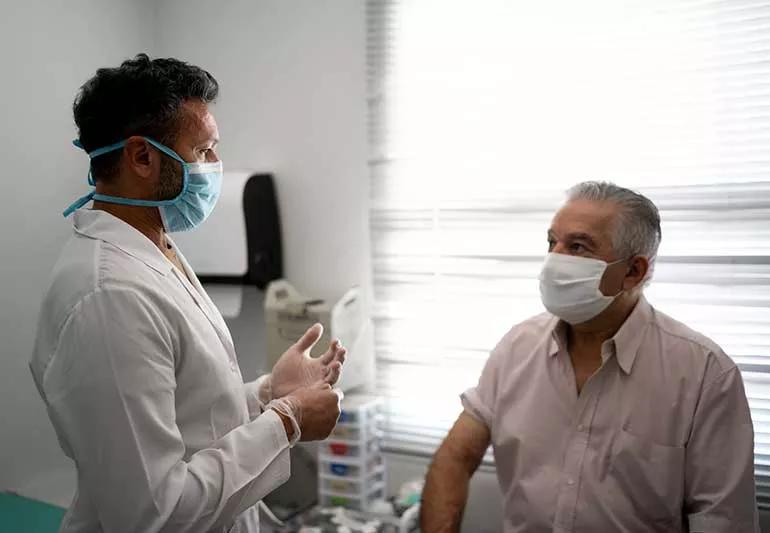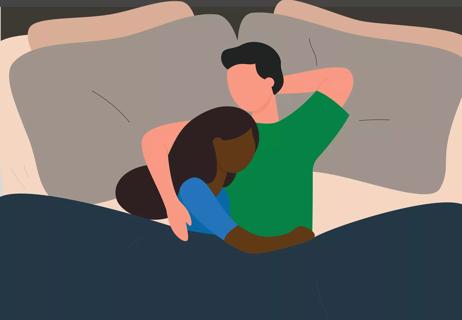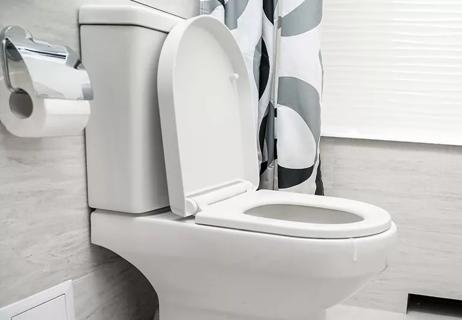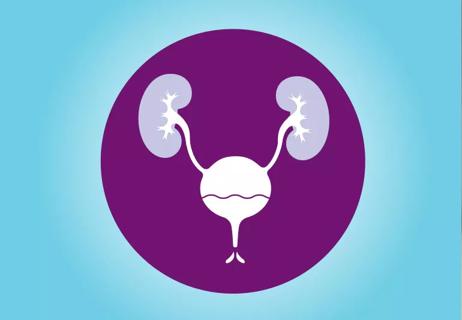An enlarged prostate, diuretics and bladder irritants can all contribute

A quick trip to the bathroom is a small inconvenience when you have to get out of bed in the middle of the night. But if you’re taking bathroom breaks regularly throughout the day, and still find yourself having to urinate multiple times at night, you may be concerned about how frequently you’re going.
Advertisement
Cleveland Clinic is a non-profit academic medical center. Advertising on our site helps support our mission. We do not endorse non-Cleveland Clinic products or services. Policy
In truth, the frequency of urination is different for everyone. There’s no one answer for how often you should pee in a day. But if your number of trips to the bathroom is becoming bothersome and your ability to urinate is interrupting your daily life — or worse, you experience some pain when you pee — you may want to see a healthcare provider.
If you have a penis, there are specific underlying causes that might be contributing to your frequent flow. Urologist Petar Bajic, MD, walks us through some of the more common causes.
Frequent urination looks different for everyone, and it isn’t always a sign of trouble brewing. As Dr. Bajic explains, whether or not you’re urinating too much comes down to whether or not you’re bothered by it.
“Most of the people that are complaining about frequent urination might be bothered by urinating every hour, two hours, or sometimes even three hours,” he says. “You’re either bothered by it because it’s annoying or because it’s interfering with your ability to do certain things or activities.”
There are a lot of conditions behind frequent urination — and sometimes, it just boils down to how you drink and process fluids. In general, there are two categories of urinary symptoms of frequent urination.
Advertisement
“If your bladder fills too quickly or if your bladder doesn’t hold a lot, you’re going to have urinary frequency and you might have urinary urgency. We call those storage symptoms,” says Dr. Bajic. “Then, there’s a separate set of symptoms of what we call voiding symptoms. These are ones that are more related to having difficulty trying to empty the bladder like having a weak urinary stream or a sensation of incomplete emptying.”
Here are some common causes of frequent urination that show symptoms of each:
When you eat food and drink fluids, the things you consume are broken down into nutrients that then fuel different biological processes in your body and keep you alive. Your kidneys remove unneeded nutrients (known as waste) from your blood and create urine that’s then stored in your bladder. Your bladder is a hollow organ about the size of a grapefruit in your pelvic area. As it fills with urine, it expands. When you go to the bathroom, the walls of your bladder contract so you can pee, and when you’re done, your bladder shrinks back down.
If you’re having bladder control issues, it may look like frequent urination, not being able to hold your urine, accidentally peeing or leaking during activities or leaking when you feel like you don’t have to go to the bathroom. Sometimes these things happen because your bladder fills quickly or can’t hold enough of the urine your body is processing. This is especially true if you drink a lot of fluids, which is why it’s a good idea to stop drinking fluid two hours before bedtime.
“I always tell my patients that what goes in must come out,” says Dr. Bajic. Drinking excessive amounts of fluid is going to lead to excessive and frequent urination. The bladder only holds about between 350 and 400 milliliters of fluid. Once the bladder is full, you’re going to get the urge to urinate. Just drinking lots of water can contribute to that.”
Diuretics help your kidneys take extra salt and water out of your body by making you pee more. Prescribed as a water pill, diuretics are most helpful if you’ve got a medical condition that makes you retain water, like kidney failure, heart failure or high blood pressure. But there are also natural diuretics found in foods, especially if they have caffeine (like coffee, soda and tea).
“All of that is going to cause you to produce more urine, which is going to cause your bladder to fill more quickly,” notes Dr. Bajic.
Some foods act as bladder irritants, too, like spicy foods, alcohol, and artificial sweeteners and sugar substitutes (like Sweet’N Low®, Splenda ® or stevia).
“Artificial sweeteners like sugars or alcohols are irritating to the inside lining of the bladder,” says Dr. Bajic. “When those substances are secreted into the urine, they come into contact with the inside lining of the bladder and that might cause the bladder to be in more of a spasm state.”
Advertisement
When these foods cause an overactive bladder, it may interfere with your bladder’s ability to store urine because it will stimulate bladder spasms and cause an urge to urinate, even if your bladder isn’t full.
Changes to your prostate can also affect urine frequency. Prostates add additional fluid to your ejaculate. Located just under the bladder, the prostate surrounds the urethra (the tube that carries urine from the bladder out of your body). Although typically the size of a walnut, the prostate tends to get larger around age 40 (what’s called benign prostatic hyperplasia). If your prostate gets too large, it can cause a blockage and make it difficult to urinate or empty your bladder completely.
“Prostate enlargement is more commonly tied to voiding symptoms like a weak urinary stream, a sensation of incomplete emptying or dribbling when you leave the bathroom, but it can also cause storage symptoms,” explains Dr. Bajic.
“When you have an enlarged prostate, it makes it more difficult to empty your bladder. If you can’t empty your bladder completely, the tank is going to fill back up again quickly so you may have more frequent urination. Over time, having to push urine out through a tight prostate can put strain on the bladder, and that can lead the bladder to become overactive, like an overworked muscle.”
Advertisement
Prostate enlargement, although not cancerous, is quite common. It affects 50% of men by age 50, and 80% of men by age 80.
When your body isn’t able to process sugar (glucose) it backs up into your bloodstream. If your blood sugar levels are too high (prediabetes) you run the risk of developing diabetes.
“If your blood sugar gets too high, sugar will actually leach into your urine,” states Dr. Bajic. “When there’s sugar in the urine, it actually pulls more water out of your body and acts as a diuretic.”
Even some of the medications that are used to treat diabetes, like Farxiga® (dapagliflozin), can cause more sugar to build up in your urine as a way to try to get sugar out of your body.
“By taking that medication, maybe your diabetes is better controlled, but it might cause you to pee more frequently,” says Dr. Bajic.
Urinary tract infections and bladder infections can cause an inflamed bladder (cystitis). This is most often associated with frequent urination, painful or burning urination and foul-smelling pee. You may also experience a fever, chills or vomiting as well.
Several neurological conditions disrupt nerve signaling pathways and contribute to bladder overactivity or underactivity (what’s called neurogenic bladder). Some of the more common neurological conditions that cause frequent urination include multiple sclerosis, Parkinson’s disease, stroke and spinal cord injuries.
Advertisement
Bladder cancer is the fourth most common cancer affecting men. Although frequent urination is a symptom of bladder cancer, there are more telling symptoms like blood in your urine, painful urination, difficulty urinating and persistent bladder infections.
In a lot of cases, small lifestyle changes like avoiding bladder-irritant foods and diuretics can be helpful in decreasing how often you urinate. If you’re using a medication that has the potential to cause bladder spasms, your healthcare provider can work with you to determine if there are other medications you can use instead.
Overall, if lifestyle changes don’t make a difference or you’re concerned about how often you’re urinating, the most important thing you can do is work with a healthcare provider to figure out the underlying cause behind your frequent urination This is especially true if you experience blood in your urine, painful urination or persistent bladder infections. If you experience any or all of these symptoms and you’re over the age of 55, you should see your healthcare provider right away to rule out the potential bladder cancer.
“You’ll want to work with a primary care doctor to make sure you don’t have diabetes or some other medical condition that may be contributing to or causing some of these symptoms,” advises Dr. Bajic. “If it seems like it might be more related to a prostate issue, then have that evaluated either by your primary care doctor or urologist, and then you can discuss a variety of treatment options, which can include medications, or even sometimes, procedures to relieve the blockage from the prostate.”
Those procedures involve a variety of surgical procedures that range from minimally invasive office-based procedures to partial or complete removal of the enlarged portion of your prostate. At the end of the day, if you’re having trouble urinating or you’re just concerned about the number of times you run to the bathroom, a visit to your doctor can help figure things out before they get worse.
Learn more about our editorial process.
Advertisement

Urine can contain bacteria, viruses and more — don’t drink it or use it to clean wounds

Don’t ‘go with the flow’ if you have issues with urge incontinence or a contagious infection

Going seven times a day is average, but more or less can be OK, too, as long as you’re not experiencing drastic changes

Pee is usually odorless, but if it’s stinky, your diet is the most likely culprit

Try elevating your legs during the day and stop drinking two hours before bed

Find out whether you should head to the bathroom after the bedroom

It’s completely normal for the color of your urine to vary a little day by day, but it should stay within a certain range of yellow

Why this strange symptom might spell double trouble

Wearing a scarf, adjusting your outdoor activities and following your asthma treatment plan can help limit breathing problems

Your diet in the weeks, days and hours ahead of your race can power you to the finish line

When someone guilt trips you, they’re using emotionally manipulative behavior to try to get you to act a certain way